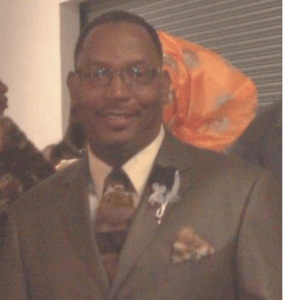In Luke’s Gospel the 18th chapter and first verse it says, “And Jesus spake a parable unto them to this end that men ought always to pray, and not faint.”
That is the King James version.
The NRSV says it like this, “Then Jesus told them a parable about their need to pray always and not to lose heart.”
The Message translation says it like this, “Jesus told them a story showing that it was necessary for them to pray consistently and never quit…”
It is a fact that prayer was central to the ministry of Jesus the Christ of Nazareth. Scripture records that on several occasions Jesus would pull aside to pray to God. In the scripture above, Jesus is lifting up a story, a parable to illustrate that it was necessary for people who followed him to pray consistently and never give up, never faint, never lose heart, and never think that prayer was perfunctory.
The problem is that many people either are not confident about their prayers or do not feel that they are praying correctly.
Oftentimes, we hear people who seem to have a fluid flow of words in prayer and we think, “I cannot pray like that.” We also mistakenly think that people who can string words together in a poetic way have a deep prayer life.
Too many people compare themselves to others they hear pray in public and become intimidated to the point they do not want to be called on to pray. Prayer is not the words that one can string together. Prayer is not how fluid it appears a person can flow in prayer. Prayer is not how loud a person’s voice is when they pray. Prayer is nothing more than a conversation with God.
Prayer is a form of intimacy with God where a person expresses in that conversation to God what is honestly and genuinely on his heart.
James Montgomery poetically penned these powerful words about prayer when he wrote, “Prayer is the soul’s sincere desire, unuttered or expressed, the motion of a hidden fire that trembles within the breasts…”
For this first installment on prayer, please let those words sink deep within your spirit. Remember as Max Lucado says that the only time Jesus was critical of prayer was when it was done hypocritically for self-promotion or for theater. Prayer is about your passion to be close to the Holy One.
Therefore, no one can teach you how to pray, just as no one can teach you how to have a conversation with a lifelong friend. You just do it knowing that the person you are talking to is not judging you based on your use of grammar but is so invested in the relationship that they are in reality listening to your heart and not your words. God wants you to honestly express whatever it is that resides within your heart.
Someone is asking right now, “how do I organize the multiplicity of my thoughts in prayer?” For that I offer what is called the A.C.T.S. of prayer. It is a framework to help in organizing one’s thoughts in prayer.
The framework starts with the “A,” which stands for Adoration. It means to start off in prayer just adoring God. Adoration means to give God glory for being the reason you have life another day. Give God adoration for being the creator and sustainer of your life.
The second letter is “C” and stands for Confession. It means to confess your falling short in this life to God in prayer. It is a way to keep us humble in prayer because none of us are perfect. None of us are so good we don’t have some thoughts, some deeds, some attitudes and some behaviors that are contrary to the character of God. Therefore, confess them to God in prayer.
Next, comes the “T” of the framework. And the “T” is for giving thanks to God. Thank God for God’s forgiveness. Thank God for God’s mercy. Thank God for God’s grace. Thank God for being God.
Then comes the final letter, and that is the “S.” The “S” is for supplication. In other words, after you have adored God, after you have confessed to God and after you have given God thanks, then make your request to God or supplication to God.
For those who struggle with organizing your thoughts in prayer, this frame of A.C.T.S. is a help to get you started. It is a framework to help you form a consistent and committed ritual of relationship with God through prayer.
Prayer is a form of power, resistance and deliverance that will enable you to overcome and excel through any trial, any problem and any trauma. Yet prayer is so much more than that. Prayer is identity, prayer is a sense of purpose and prayer is the ignition switch to serving God by being a help to others. Authentic and sincere prayer moves one to action for God to change circumstances and situations that hinder others from living in dignity in this life. Prayer strengthens our connection and communion with our creator who has the ultimate and final word on all of our lives.
In this first installment on prayer, I offer the A.C.T.S. of prayer as a discipline to practice each day and each time you pray to help build a stronger prayer life, which can and will not only change you but will change the world around you because of your link to the eternal.
Jesus said, “Men and women ought always to pray and never faint.”
Pray beloved!

Rev. Dr. John E. Jackson, Sr. is the Senior Pastor of Trinity United Church of Christ-Gary, 1276 W. 20th Ave. in Gary. “We are not just another church but we are a culturally conscious, Christ-centered church, committed to the community; we are unashamedly Black and unapologetically Christian.” Contact the church by email at [email protected] or by phone at 219-944-0500.

Rev. John E. Jackson
Rev. Dr. John E. Jackson, Sr. is the Senior Pastor of Trinity United Church of Christ-Gary, 1276 W. 20th Ave. in Gary. “We are not just another church but we are a culturally conscious, Christ-centered church, committed to the community; we are unashamedly Black and unapologetically Christian.”
-
Rev. John E. Jackson#molongui-disabled-link
-
Rev. John E. Jackson#molongui-disabled-link
-
Rev. John E. Jackson#molongui-disabled-link
-
Rev. John E. Jackson#molongui-disabled-link






